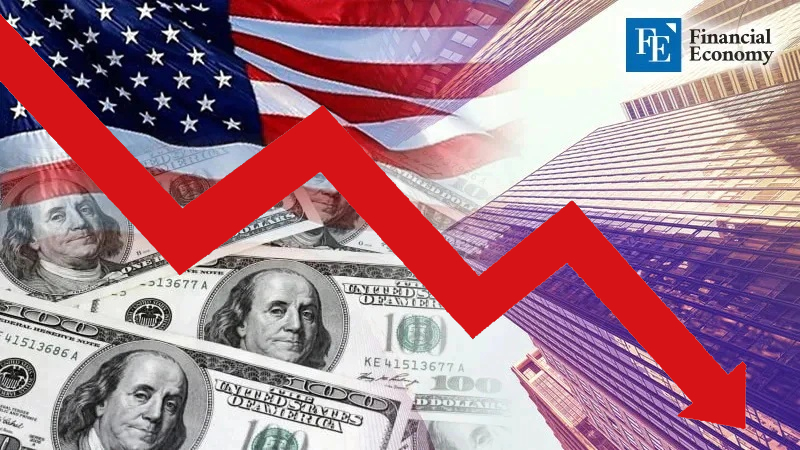U.S. Treasury Prices Plummeted in an Instant—Are China and Japan Behind It?
Input
Modified
U.S. Treasury Yields Rise Amid Economic Uncertainty Securities Industry: "China Sold U.S. Bonds as a Form of Retaliation" Some Foreign Media Spotlight Japan’s 'Bond Vigilantes'

In a surprising twist for global markets, U.S. Treasury bonds—long viewed as the ultimate safe-haven asset—are no longer the comfort blanket investors typically reach for in turbulent times. Amid growing fears of an economic downturn, one would expect demand for U.S. government debt to surge. Instead, the opposite has occurred: prices have plunged, and the ripple effects are raising eyebrows across financial capitals.
This unexpected retreat has triggered intense speculation. Many are now asking: Are major U.S. bondholders like China and Japan deliberately offloading Treasuries to send a message—or to shift the balance in ongoing geopolitical standoffs?
U.S. Treasury Prices Plunge
The numbers speak volumes. As of April 11, the yield on the benchmark 10-year U.S. Treasury had jumped to 4.494%, up from 4.009% just a week earlier. That half-percentage-point surge marks the biggest weekly increase since November 2001, according to international media reports.
For context, when Treasury yields rise, bond prices fall. Typically, economic uncertainty drives investors toward U.S. Treasuries, pushing prices up and yields down. But in this case, the opposite trend has unfolded—a rare and unsettling anomaly in global capital flows.
Analysts attribute this jarring shift to foreign capital fleeing the U.S. bond market. The Financial Times didn’t mince words, stating that President Donald Trump’s erratic tariff policies have shaken international confidence in American economic stability. Similarly, Peter Tchir, Head of Macro Strategy at Academy Securities, emphasized that uncertainty over Trump’s next moves is “increasing pressure to sell off U.S. Treasuries and corporate bonds.”
China’s Retaliation for Tariff Pressure?
Some experts believe the key to understanding the sell-off lies in Beijing. As the Trump administration intensifies trade barriers against China, rumors are swirling that China is retaliating by dumping U.S. bonds—weaponizing its massive Treasury holdings.
And it’s not an unprecedented tactic. During a tense chapter of the U.S.-China trade war in 2023, Beijing liquidated $240 billion worth of U.S. Treasuries—a dramatic move that rattled financial markets worldwide.
This time may be no different. In a note to investors, Ataru Okumura, Chief Interest Rate Strategist at SMBC Nikko Securities, suggested that China could again be unloading Treasuries as a retaliatory tool—perhaps even to jolt global markets and gain leverage in trade negotiations.
Echoing that concern, veteran Wall Street analyst Ed Yardeni warned that investors are growing uneasy—not just about China’s next move, but about whether other major holders of U.S. debt could follow suit.

Japanese Investors Dumping Bonds
But China may not be the only—or even the primary—actor behind the bond market’s turmoil. Some analysts point to Japan, which holds more U.S. debt than any other country.
A Fox Business report on April 10 suggested that the dramatic spikes in yields on 10- and 30-year Treasuries may have been triggered by large-scale Japanese sell-offs. Charlie Gasparino, a journalist with strong connections to pro-Trump circles, claimed that sources in the White House and major asset management firms linked Japan’s bond dump to President Trump’s decision to delay tariffs by 90 days. The implication? Japan’s move shook the administration’s confidence in the market’s stability.
“If large-scale bond sales continue,” Gasparino warned, “people will lose confidence in the U.S. economy.”
Nikkei Shimbun further fueled the debate with its April 11 coverage, suggesting that Japan’s influential “bond vigilantes” may have played a role in restraining Trump’s tariff ambitions. These vigilantes—typically investors who oppose reckless fiscal policies—are known for protesting by selling off government bonds, driving up interest rates in the process.
Recent figures from Japan’s Ministry of Finance seem to support this theory. Japanese investors net sold 2.5 trillion yen (approximately $165 billion USD) in foreign bonds, including U.S. Treasuries, during the past week—the largest outflow in five months.





















